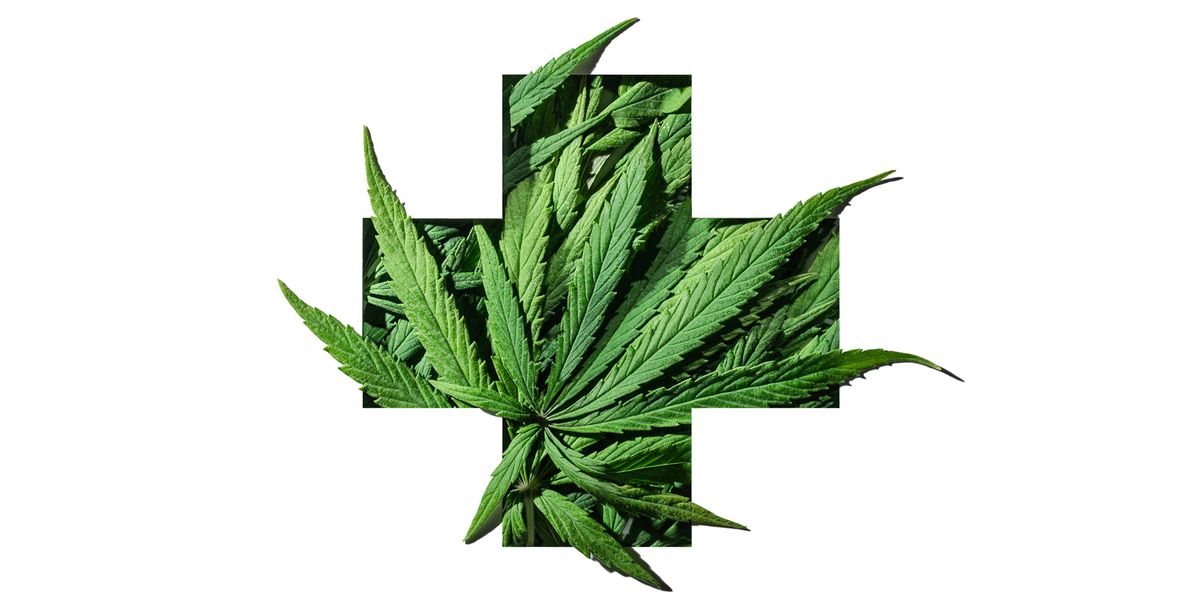Shedding Light on What Medical Marijuana Can Heal: an Extensive Evaluation of Its Restorative Properties
In recent years, there has actually been a growing passion in the restorative capacity of medical marijuana. While unscientific proof is plentiful, a comprehensive assessment of the scientific information regarding the efficiency of clinical cannabis in dealing with these conditions is necessitated.
Chronic Discomfort Management
Persistent discomfort monitoring continues to be a critical aspect of medical treatment, demanding a comprehensive technique for reliable therapy. Over the last few years, clinical marijuana has actually arised as a possible therapeutic alternative for individuals experiencing chronic pain conditions. The endocannabinoid system, which plays an important role in discomfort modulation, has been targeted by cannabis-based treatments to ease signs and symptoms and boost lifestyle for people.

In addition, medical cannabis uses an appealing option for clients who experience unbearable adverse effects from conventional discomfort medications. Its capability to resolve discomfort via a different device makes it a beneficial enhancement to the arsenal of treatments offered for chronic pain monitoring.
Epilepsy Therapy Possible
Clinical marijuana has revealed appealing possibility in the treatment of epilepsy, using a novel restorative strategy for taking care of seizures in clients. Epilepsy is a neurological problem characterized by recurrent seizures, affecting individuals of all ages. Conventional therapies for epilepsy consist of antiepileptic drugs, but these drugs might not work for all patients and can have significant negative effects.
Research study on the usage of medical cannabis for epilepsy has actually exposed motivating results. Cannabidiol (CBD), a non-psychoactive substance found in cannabis, has actually been especially highlighted for its anticonvulsant homes. Research studies have shown that CBD can decrease the regularity and extent of seizures in people with treatment-resistant forms of epilepsy, such as Dravet disorder and Lennox-Gastaut syndrome.
Moreover, the FDA has actually accepted a CBD-based drug, Epidiolex, for the treatment of seizures connected with these extreme forms of epilepsy. This milestone underscores the expanding acknowledgment of medical cannabis as a beneficial healing alternative for handling epilepsy and gives wish for patients who have not reacted well to conventional therapies.
Queasiness Relief Perks
The reduction of nausea or vomiting through making use of marijuana has been increasingly acknowledged for its therapeutic benefits in numerous clinical problems. Queasiness and throwing up prevail signs and symptoms experienced by people undertaking radiation treatment, those with food poisonings, and individuals with persistent discomfort problems. Clinical marijuana, with its energetic substances such as THC and CBD, has actually revealed assurance in giving alleviation from nausea.
Furthermore, clinical marijuana uses a natural choice for people that do not respond well to standard anti-nausea medicines or who experience extreme adverse effects from these drugs. Patients undertaking chemotherapy, particularly, have actually reported significant improvements in their quality of life when using marijuana to manage nausea or vomiting. As research in this field proceeds to expand, clinical cannabis is progressively being taken into consideration as a useful option for nausea alleviation in various medical setups.
Anxiousness Reduction Impacts
Studies have shown the capacity of marijuana in minimizing anxiousness signs and symptoms with its interaction with the endocannabinoid system. The endocannabinoid system plays an essential role in controling feelings, consisting of anxiety, by maintaining homeostasis in the body. Cannabinoids in cannabis, such as THC and CBD, connect with the endocannabinoid receptors in the brain, especially the CB1 and CB2 receptors, to regulate anxiety-related reactions.

Clients with problems like generalized anxiousness problem (GAD), social anxiety disorder, and post-traumatic anxiety condition (PTSD) may take advantage of the anxiolytic residential properties of cannabis (Medical Cannabis Doctor). More study is required to figure out ideal does, delivery techniques, and long-term effects on anxiety management.
Potential for Swelling Control
With its well-known anti-inflammatory homes, cannabis has actually revealed promise in potentially controlling swelling within the body. Swelling is the body's natural response to injury or infection, yet when it becomes persistent, it can add to various conditions such as joint inflammation, inflammatory digestive tract illness, and even cardiovascular disease. Research study recommends that the cannabinoids located in marijuana, such as THC and CBD, can help manage the immune action and decrease swelling.
Studies have actually shown that cannabis can connect with the endocannabinoid system, which plays a crucial duty in regulating swelling. By targeting the cannabinoid receptors, cannabis substances can regulate the immune response, bring about a decrease in inflammation degrees. This makes cannabis a possible candidate for taking care of inflammatory problems where standard web treatments have actually dropped short.
In addition, cannabis-derived items like CBD oil have gotten popularity for their anti-inflammatory residential or commercial properties, with several people utilizing them as a natural solution for conditions connected with swelling. While even more study is needed to totally comprehend the systems behind marijuana's anti-inflammatory impacts, existing searchings for reveal promising outcomes for the possible use medical cannabis in regulating inflammation.
Final Thought
In verdict, medical cannabis has shown encouraging healing residential properties in taking care of chronic pain, dealing with epilepsy, alleviating queasiness, minimizing anxiety, and managing swelling. Its possible advantages in numerous medical problems highlight the relevance of further research and expedition into its medicinal use. The evidence suggests that medical marijuana can be a valuable alternative treatment alternative for clients seeking relief from a series of signs and problems.
In current years, clinical marijuana has actually emerged as a possible healing alternative for individuals see it here enduring from chronic discomfort problems.Clinical cannabis has actually shown appealing capacity in the treatment of epilepsy, offering a novel healing approach for taking care of seizures in patients. As study in this location continues to expand, medical cannabis is increasingly being considered as a beneficial alternative for nausea or vomiting alleviation in different medical setups.
In final thought, medical cannabis has actually revealed promising therapeutic properties in taking More Bonuses care of persistent pain, dealing with epilepsy, relieving queasiness, minimizing anxiety, and regulating swelling. The evidence suggests that clinical cannabis can be a useful alternative treatment choice for patients looking for relief from a variety of signs and symptoms and problems.